WASHINGTON, D.C. — A majority of U.S. Democratic Senators are calling on the Big Three automakers to support a just transition to electric vehicles (EVs) in their ongoing contract talks with the UAW.
In a letter released today, the Senators said, “Profits should translate to gains for workers. It is unacceptable that in the midst of extreme financial gains for the companies, executives, and investors, the workers making the electric vehicle batteries that will enable a transition to clean energy vehicles are making poverty-level wages. Before the expiration of UAW’s contract, we urge you to announce that all electric vehicle workers at these joint ventures will be folded into the national UAW contract.”
The UAW contract expires on Sept. 14, and it covers 150,000 autoworkers at Ford, General Motors and Stellantis.
In a statement, UAW President Shawn Fain said, “These senators agree that now is the time to ensure all autoworkers have the same pay and safety standards that generations of UAW members have fought for and maintained. This senate letter puts a spotlight on EV workers and the need for a just transition in the new green economy because it’s a national concern for all our communities. These negotiations will set the future of the auto industry for decades to come, so we have to get it right. This is when real friends show up. Our members are thankful for the partnership we have with these senators.”
A copy of the letter is below and a full list of the signatories can be found HERE.
Dear Ms. Barra, Mr. Farley, Mr. Tavares, Mr. Eun, Dr. Rhee, and Mr. Chun:
As you engage in contract negotiations with the United Auto Workers (UAW), we urge you to negotiate in good faith to reach a fair outcome by agreeing to fold workers at all joint venture electric vehicle battery facilities into the national UAW contract. UAW workers have made General Motors, Ford Motor Company, and Stellantis the successful, innovative, and profitable companies they are today, and workers in the new electric vehicle sector will be critical to your future success. They must share in the benefits of a union contract.
Through the passage of the historic Inflation Reduction Act (IRA), the United States Congress made it clear that electric vehicle production, as well as its contributing supply chain, is a national priority industry. We were proud to support the legislation that made major investments in this American clean energy industry possible – we need to reduce greenhouse gas emissions to address the disrupting impact of climate change on American families, as well as ensure that the technologies of the future are designed and produced here in the United States by American workers with union contracts. We can and must do both.
Though we can all agree that investments in electric vehicle production are necessary to outpace foreign competition, these investments are not a blank check on worker conditions. Department of Energy loans made possible by the IRA require the companies to create “good-paying jobs with strong labor standards…throughout the life of the loan.”
In other words, high-tech electric vehicle manufacturing jobs should set the standard for wages and benefits for all American manufacturing jobs. These are highly skilled, technical, and strenuous jobs. To that end, it is unacceptable and a national disgrace that the starting wage at any current American joint venture electric vehicle battery facility is $16 an hour. We note that at $33,320 a year, the starting wage at one of these facilities is just above the poverty level for a family of four. American workers, especially those working full time in 21st century state-of-the-art manufacturing, should not make poverty level wages.
The starting wage at these electric vehicle facilities is particularly egregious in the face of the billions of dollars of profits GM, Stellantis, and Ford have made in the past 10 years. Between 2013 and 2022, General Motors and Ford Motor Company made over $100 billion and $75 billion in profit in North America, respectively. Stellantis announced almost $18 billion in profits in 2022 alone. This should, in theory, be great news. It is a testament to our economic resilience that profits are now well above pre-pandemic levels. But despite these impressive figures, General Motors and Stellantis have both announced plans to restart billion-dollar stock buyback programs rather than invest in their workers. In fact, in that same profitable 10-year period, GM, Ford and Stellantis have all closed or “idled” productive plants across the country, including the General Motors Lordstown Facility in Ohio and the Stellantis Belvidere Assembly Plant in Illinois. These closures should never have happened in the first place.
Profits should translate to gains for workers. It is unacceptable that in the midst of extreme financial gains for the companies, executives, and investors, the workers making the electric vehicle batteries that will enable a transition to clean energy vehicles are making poverty-level wages. Before the expiration of UAW’s contract, we urge you to announce that all electric vehicle workers at these joint ventures will be folded into the national UAW contract.
In 100 days, contracts expire for 150,000 autoworkers at Ford, General Motors, and Stellantis. UAW members are gearing up to win big for working class communities across the country.
This contract fight will be the UAW’s defining moment as the auto industry transitions to electric vehicles. We’re setting a new standard, and members are united in the fight for our core demands:
- Ending wage and benefit tiers that divide workers
- Bringing back cost-of-living-adjustments (COLA)
- Job security when companies are making record profits
- Building a sustainable future for workers who build electric vehicles
The Big Three have made a quarter of a trillion dollars in North American profits in the past 10 years, while autoworkers still endure Great Recession-era wages and benefits. UAW autoworkers saved the auto industry 15 years ago and were never made whole.
It’s time for the Big Three to make it right.
We need your help to make sure they do.
Can we count on you?
WATCH: UAW members are back in the fight! https://youtu.be/r71X1Mee7nY
CNBC: UAW Union Outlines Demands Ahead of Critical Negotiations with Detroit Automakers
https://www.cnbc.com/2023/06/01/uaw-negotiation-demands-ahead-of-detroit-automaker-talks.html
This week, top officers of the UAW participated in the union’s first-ever Unionwide Town Hall, themed “Back in the Fight: Our Generation’s Defining Moment at the Big Three.”
The National Town Hall is a new addition to the UAW constitution, passed by delegates at the 2022 Constitutional Convention, “to ensure an open flow of information and better communication with the UAW’s active and retired membership.”
President Shawn Fain laid out the union’s position towards the Detroit automakers. “These companies have been extraordinarily profitable, and our members have created incredible value for these companies during some really hard, and dangerous years,” Fain said. “They can afford our demands, and we expect them to pony up.”
Secretary-Treasurer Margaret Mock noted, “These companies can afford all of our demands. Since the Great Recession, as a result of our members’ hard work, the Big Three have been amassing an ocean of money.”
Vice President Rich Boyer spoke about the need to end the tier system in the upcoming contracts. “Tiers weaken us and undermine our solidarity by dividing us in our workplaces. Tiers must come to an end.”
Discussing the need to win back the reinstatement of COLA, Vice President Chuck Browning stated, “Inflation has gone up three times as much as our wages in the past three and a half years. That’s unacceptable, and unsustainable.”
Vice President Mike Booth spoke on the union prioritizing job security during the transition to electric vehicles. “It must be a just transition. That means workers aren’t left behind. The transition must do right by our members, our families, and our communities.”
VAN BUREN CHARTER TOWNSHIP, MI – As of midnight on the morning of May 17th,160 workers at Constellium Automotive are on strike, after weeks of the company refusing to bargain in good faith. The plant supplies parts for the Ford F-150, F-150 Lightning, Explorer and Super Duty at six UAW-represented Ford Assembly plants,
The workers, members of UAW Local 174, are seeking to address serious health and safety issues, along with unfair discipline from management.
“Our negotiating team has met with the company nine times since April 18th,” UAW Region 1A Director Laura Dickerson said. “And on every single occasion, Constellium has made it very clear they have zero interest in taking our members’ proposals seriously. This is a prime example of employer arrogance forcing the hand of its workforce.”
The UAW has filed unfair labor practice charges against the company for bargaining in bad faith and expects to resume negotiations this week.
“Stellantis’ push to cut thousands of jobs while raking in billions in profits is disgusting,” said UAW President Shawn Fain. “This is a slap in the face to our members, their families, their communities, and the American people who saved this company 15 years ago. Even now, politicians and taxpayers are bankrolling the electric vehicle transition, and this is the thanks the working class gets. Shame on Stellantis.”
UAW Vice President Rich Boyer said “Our union is working around the clock to get justice for the members impacted by these job cuts. We look forward to Stellantis doing the right thing by the workers who make this company run.”
Stellantis made $18 billion in profits in 2022, and paid CEO Carlos Tavares $25 million.





UAW Statement on the Republicans’ Anti-Worker Budget Reconciliation Bill
BOSK Workers Call on NLRB to Step In: “We Deserve a Fair Shot at a Union Vote”
UAW Statement on New York Mayoral Primary Race